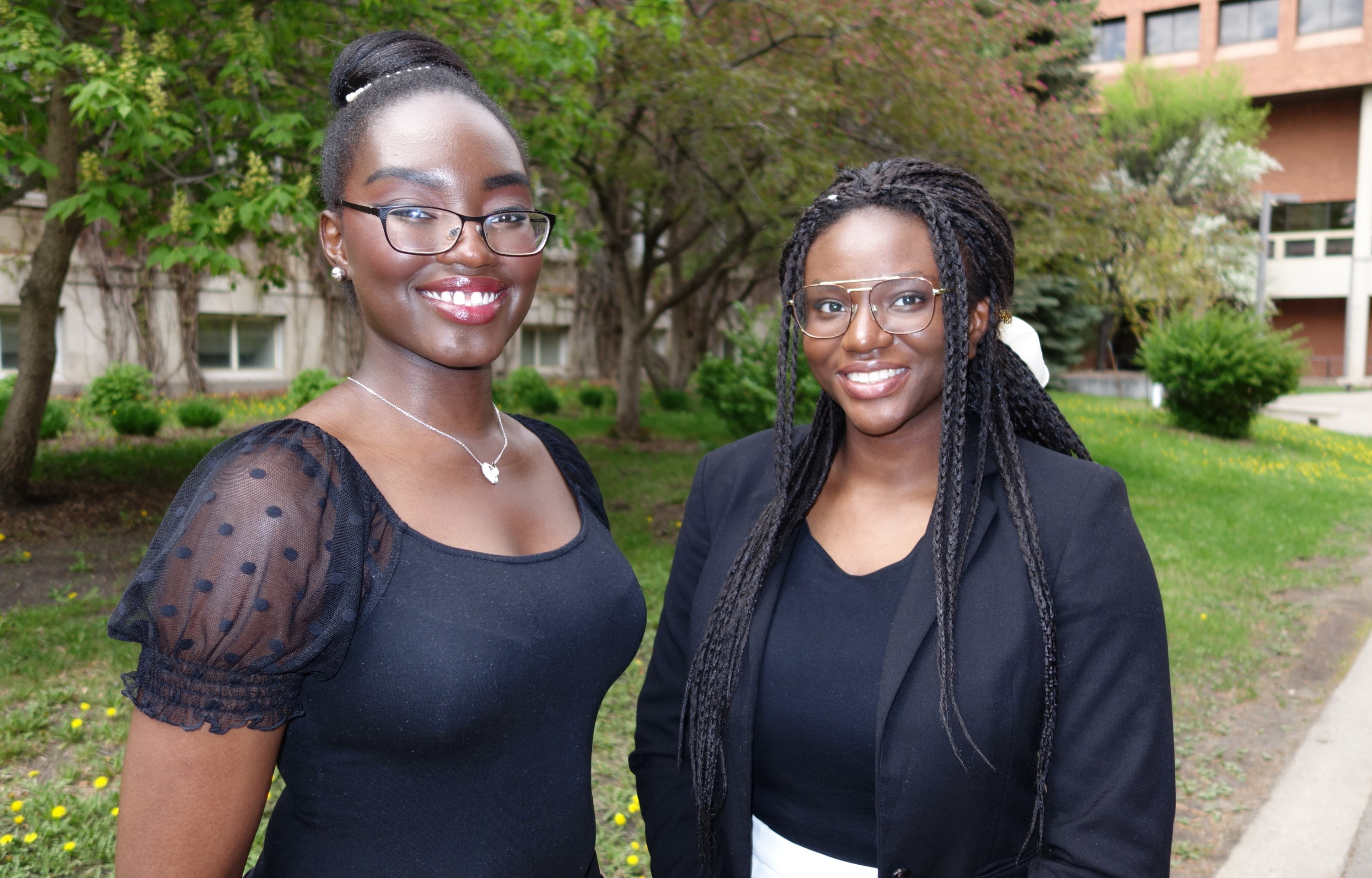After the murder of George Floyd and the American Black Lives Matter protests of 2020, Nancy Tangon and Priscilla Ojomu were dismayed by some of the Canadian reaction.
The two University of Alberta psychology students kept hearing the same refrain: “Thank God we’re not the U.S., with their toxic racism. We don’t have those problems here.”
Their own experiences told a different story. So did what they were learning about social justice, discrimination and systemic racism in a non-profit volunteer organization called On Site Placement they discovered through the U of A.
They felt there was a wide gap between reality and perception when it came to racism in Canada.
And so they set out to help expose that reality with their final project for On Site Placement’s Diversity Awareness and Skills Building Youth Program, which supports youth in self-directed, volunteer diversity initiatives in their communities.
“At the end of the program Priscilla had an idea of creating an anonymous platform where people could submit ideas or experiences of social injustices,” says Tangon. “They could protect their identities but still get the message across with as much detail as possible.”
That was the beginning of Canada Confesses, an online platform for exposing injustices in Canada while sharing and amplifying marginalized voices. The platform officially launched in February 2021.
“We’re also trying to address people’s implicit biases, touching on topics that aren't in people's immediate consciousness — just promoting the conversation.”
Canada Confesses also serves as an information network, connecting grassroots organizations and providing resources for further exploration and social action.
It has so far connected more than 35 organizations across the country, with a volunteer staff of more than 40 — ranging from high school students to retired seniors who still want to make an impact, says Ojomu, adding she is still looking for volunteers to join the team.
The pandemic made systemic injustices in Canada more visible, say the co-founders, while increasing the use of virtual tools and spaces.
“One of our key messages is that there is power in your voice, in sharing stories and using resources to hold the government accountable,” says Ojomu. “Apathy can be dangerous, especially in times like this.”
Beyond providing space for discussion, the long-term goal of the project is to spark interest in mainstream media, says Tangon, “so people will have access to necessary information on confronting bias, systemic racism and critical race theory.
“If the mainstream media isn't talking about it, who will hear about it? We hope that with these conversations, governments will take more action towards social injustices in their communities.”
Both will soon graduate from the U of A, Tangon next fall and Ojomu next year. But they intend to carry on with Canada Confesses for as long as it proves of value.
“The way this project is set up, the resources we put out will be there forever,” says Tangon. “And I see myself doing research on these issues in the future, especially with some of the injustices happening in my own community.”
She also hopes to use her knowledge of psychology to help her own South Sudanese community.
Currently working on her community service-learning certificate, and a certificate in sustainability, Ojomu hopes to go on to law school to study human rights law.
“Seeing how I can contribute has been really inspiring.”
